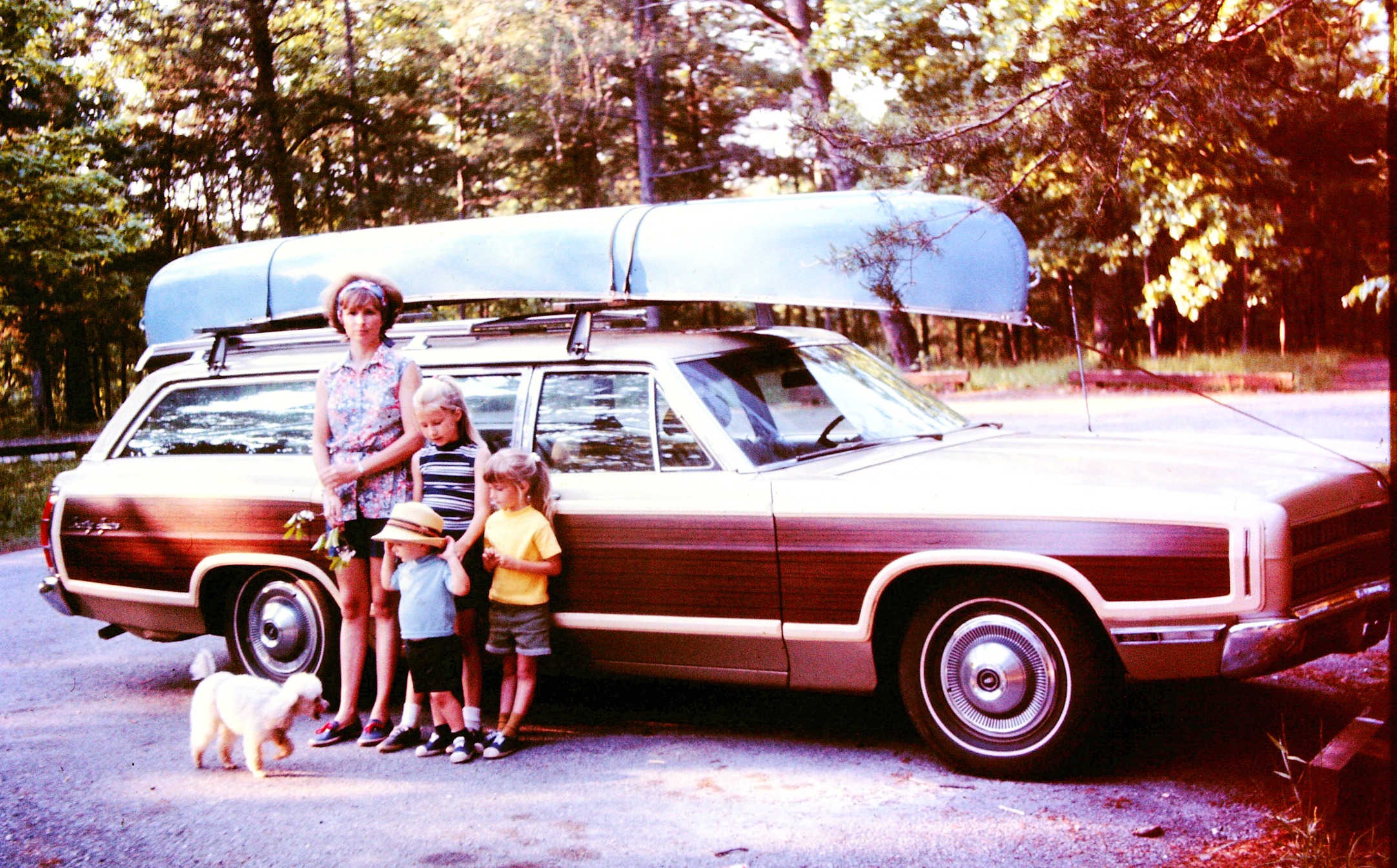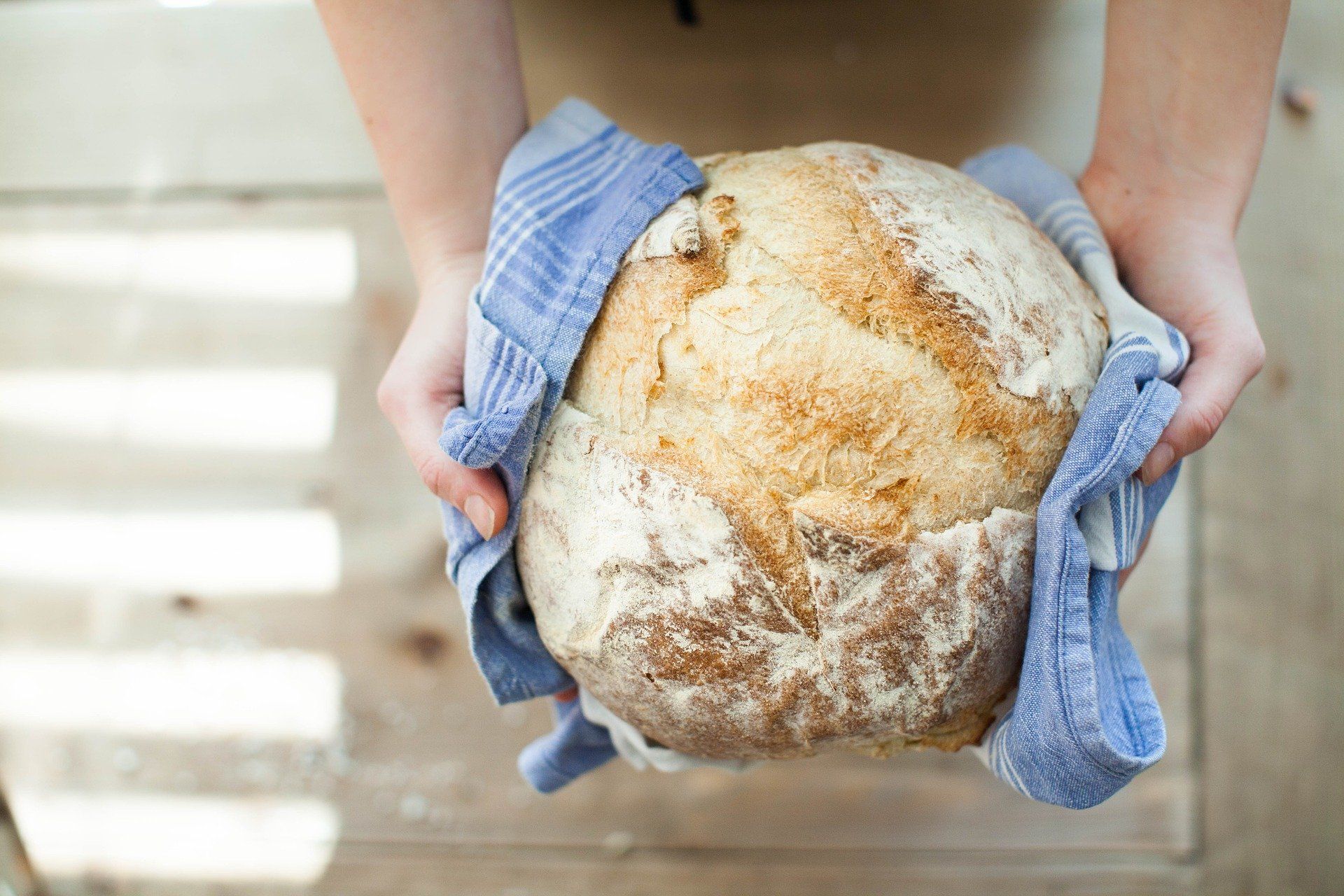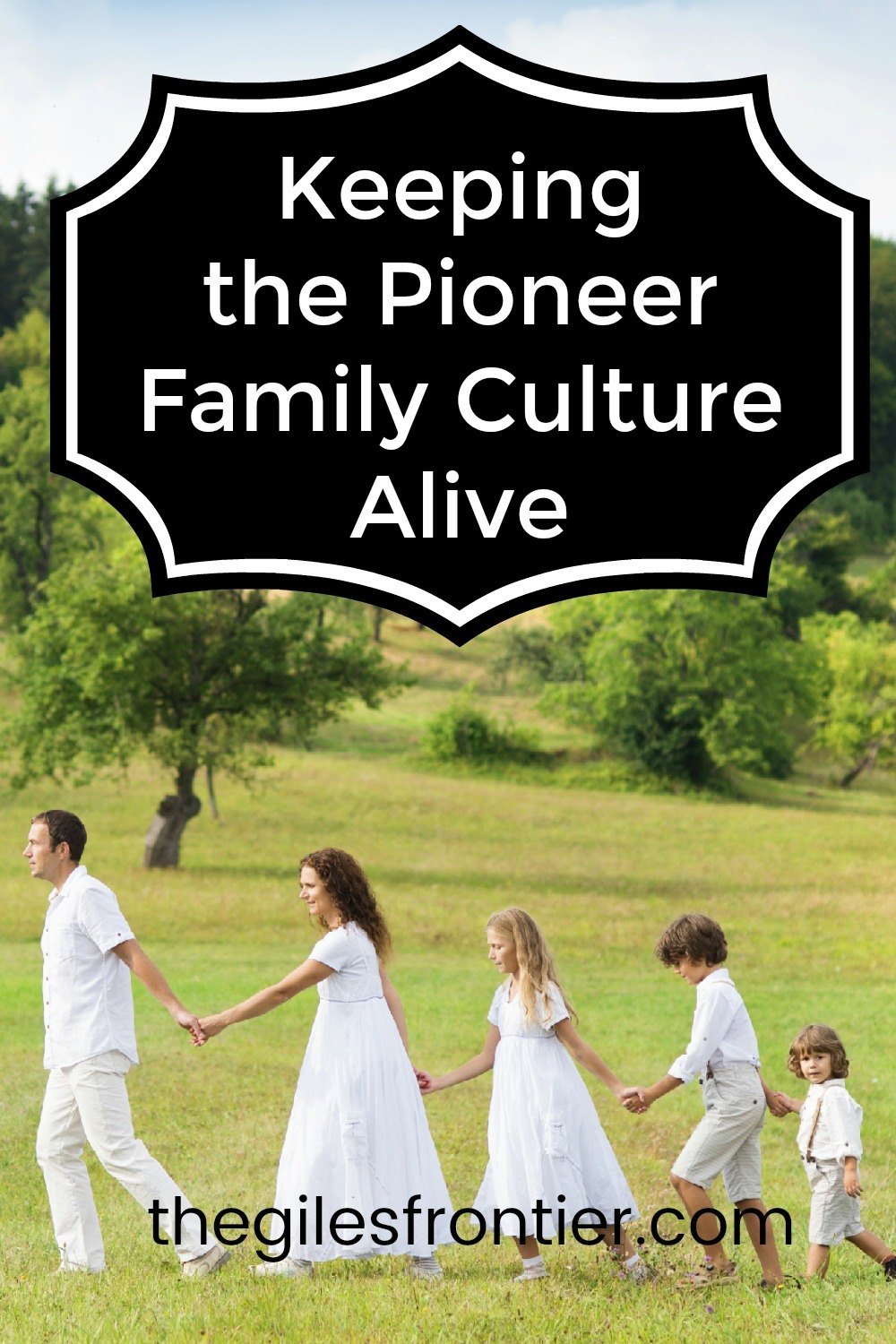
As an Amazon Associate, I may earn commissions from qualifying purchases from Amazon.com
Family Relationships
Our last installment of the Pioneer Culture is all about family relationships. How life really revolved around the importance of having those connections.
“The true way to live is to enjoy every moment as it passes. And surely, it is in the everyday things around us that the beauty of life lies.” -Laura Ingalls Wilder
If you think about it, the family relationship was the heart of pioneer life. It had to be. They depended on each other, sometimes for their very own survival in a time of great sacrifice and danger. They were their main source of socialization and education, too. Older siblings cared for younger siblings; younger siblings looked up to older siblings. Pioneer families stayed close together in later years as well, with multiple generations sometimes living under the same roof (or at least close by).
Working Together
Back then too, they often built relationships while working together. Women had “workings” where they helped each other harvest vegetables, beans, and peas. They would sit and snap beans and talk. Women formed very strong friendships. There was no entertainment to distract them. There weren’t fancy furnishings and fixer-upper shows to make one farmhouse better than the other, but there was always work to do.
And just generally, when people gathered together, they talked and developed close to ties to each other and their community. The community was very important in the pioneer settlements. Helping one another during good times and bad. Their survival depended upon it.
Gathering
Pioneers enjoyed getting together, visiting, and building family relationships. It wasn’t as often as some of us do today, and it was an effort to travel to visit kinfolks. Reunions and Christmas were important traditions if you could leave your crops to go. Reunions instilled a sense of pride in family, cousins, and distant kin. Family names were important and keeping ties with family, no matter how far away they lived or how far down the genetic line they were. Traditions and generational trades were passed down at family gatherings.
Their vacation was really relationship-building, or “visiting kin” as my grandmother called it. Our vacations now can sometimes be packed full of activities that leave us exhausted instead of refreshed, burnt out instead of filled up.

Socializing
In Laura’s time, storytelling would be one of the best socializing parts. Stories passed down and stories made up. Some you heard all your life and now could tell your children. Stories are an essential part of our culture–it always has been. It is what keeps history alive. What teaches us right from wrong, and what we hope not to repeat in future generations.
In our modern culture, storytelling is being replaced by devices telling a different story. Technology and devices are separating us from parents, siblings, and cousins down the line. I am pretty sure Laura would have loved a cell phone, but she would have had a few words of wisdom on its uses too. Do you know what I’m talking about?
Hospitality
In Laura’s day, you shared your talents, meals, and time with family and friends. They taught each other how to do what they didn’t know how to do (or how to do it better). They shared their collective knowledge to make each household run smoothly. There was no busyness and distraction to keep them from taking stock of what was important.
And their relationships extended past their family, too. Laura knew her neighbors. Neighbors knew it could be life or death if you didn’t know each other. They all knew a little about each other’s business, just enough to know when something might be wrong.
Today, some of us live a “keep-to-yourself-I’m-too-busy” kind of life. Knowing neighbors isn’t necessary unless they are annoying us in some way. If you don’t already, I challenge you to get to know a neighbor or two. A loaf of bread and some jam can go a long way in starting a wonderful relationship unless their dog is always pooping on your lawn.

Rest
After all of this, don’t believe that Laura was all work and no play for one minute. She believed in rest. She also believed in low stress. “Rest the best way to do your best.” Worrying about tomorrow’s work won’t make today’s work any better or more enjoyable. Be content with today, and what you need to do today. If you are worrying and stressing about the week ahead, you will miss the joys of today. The little nuances that make up a life being present in what you are doing now.
I believe the pioneer spirit is still alive today. That is what homeschooling is all about. Going into unknown territory, not knowing if you will survive? Taking a risk, not paying attention to those who are on the sidelines saying you’re crazy?
Apply Simplicity
So today, take one of these 5 lessons we’ve learned today and see how you can apply it to your life. How can a few simple changes help your family to live a simpler life NOW, in 2022?
When you realize that simplicity opens more doors to opportunity, hard work can begin within your family dynamics to make changes. We might not be able to return to the pioneer days, but we can take these lessons from a bygone time and put them into action now.
And let me tell you, small changes will open your eyes to ways of using what you have and not always needing more. More curriculum, more co-ops, more kitchen appliances, more devices, or more chickens. Slowly, all of those things–having more of those things–becomes less important. Using what you have breeds a sense of autonomy and makes you think of ways your family can live off the land that will become clearer with time.
Relationship
All these steps will focus on the most important things of all: Family and Friendship.
Think about what that could look like for your family.
One of my favorite sayings of Laura’s is called “just sit”
“Multitasking takes away the joy that can be found in the simplest of tasks. It can create a mindset that idleness is bad. It is in that idleness that we see the beauty of our lives. The funny moments, kids laughter, a milestone, or a look that translates our love for one another.”
I’m with Laura. Aren’t you?
